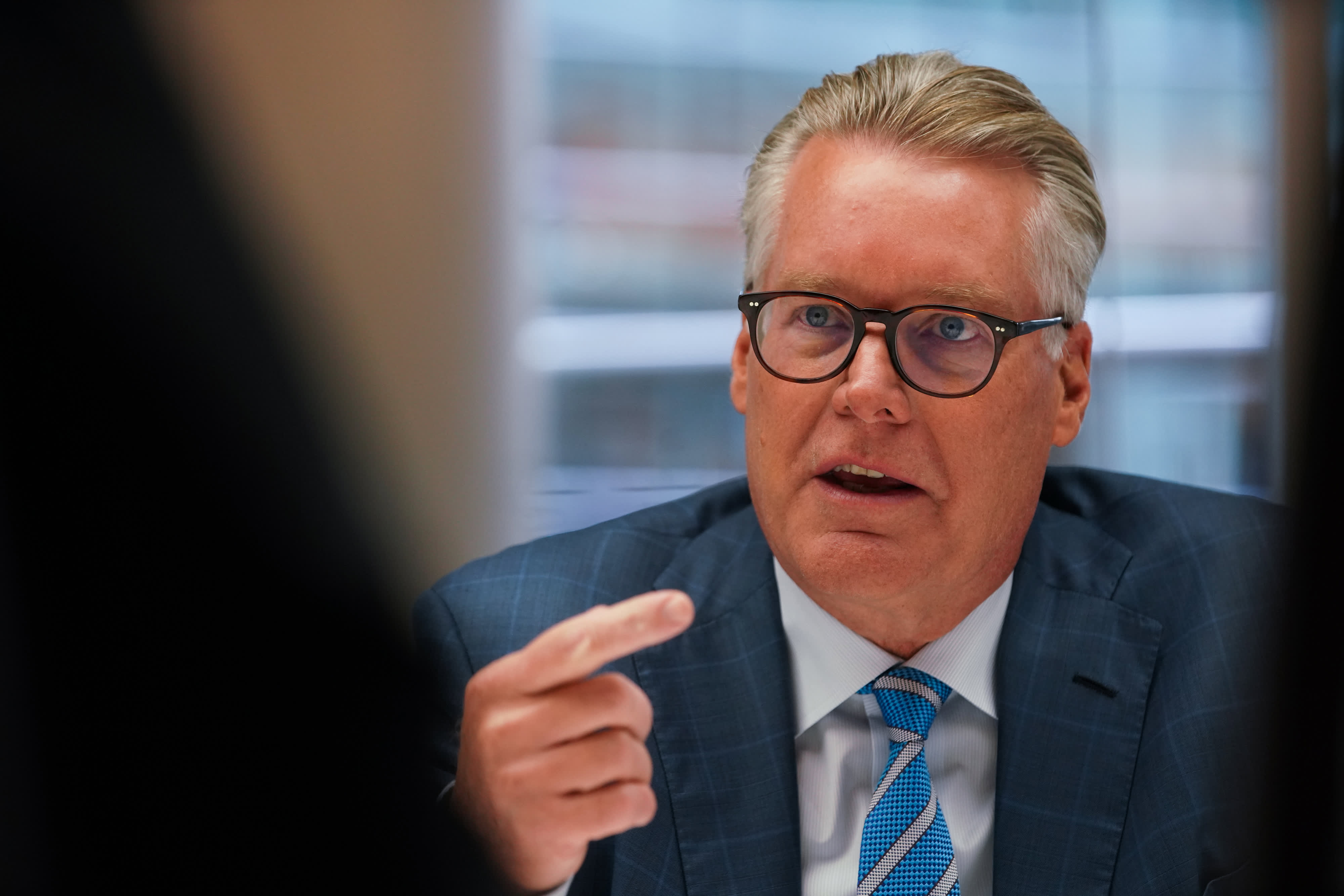‘It’s a new normal’ — Delta Air Lines CEO Ed Bastian on changing role of a CEO during trying times

The role of the CEO has dramatically shifted as companies learn to walk a fine line between stakeholder capitalism versus meeting the needs of their company’s balance sheet.
Delta Air Lines CEO Ed Bastian told CNBC’s David Faber that he never expected he would be addressing the pace of change we are seeing in the world. “I think it’s a new normal,” Bastian said. “Once you are committed to bringing everyone forward in an equitable manner, I don’t think there’s another path.”
Bastian sat down with for CNBC’s “Evolve: The Faber Interview” series and detailed the company’s road back to profitability after a year of loss and unprecedented political and social unrest. Delta saw its stock tumble 30% in the past 12 months. The carrier reported a fourth-quarter net-loss of nearly $12.4 billion for fiscal year 2020.
Bastian told Faber that with continued government support, vaccine distribution and mask compliance he believes people will feel more comfortable flying this summer. Bastian added that Delta’s decision on whether to keep the middle seat blocked, the only airline to do so through March 2021, will be determined in the coming weeks.
Beyond pandemic pressures weighing on its bottom line, Delta has remained focused on its efforts regarding diversity and environmental, social and corporate governance, with Bastian pushing for continued growth at the company. “We found that our Black colleagues have not had the opportunity that our White colleagues have had for advancement, development and opportunity,” he acknowledged. “I’m very focused on correcting that.”
In a commitment to that action, Delta announced plans to double the percentage of Black officers and directors by 2025 and has expanded recruiting to diverse schools. Bastian said that while the company has been penalized by partners and customers after being vocal on social and political beliefs, he thinks the role of a CEO has changed for good and will continue to support employees by addressing what matters outside of financials.
When it comes to the environment, Delta made a $1 billion commitment last February to become the first carbon-neutral airline globally, a special challenge for an airline operator whose planes burn billions and billions of gallons of fuel each year. Currently, the airline industry is responsible for nearly 3% of the world’s carbon footprint, something Bastian admitted is unsustainable. Without a more fuel-efficient fleet, Bastian said, Delta’s business will become increasingly difficult as the world treks toward a more sustainable future. “The world is moving fast,” Bastian said. “We need to be more dynamic.”
As conversations on ESG and inclusion have taken center stage, health and wellness have also been a main focuses in corporate leadership. In January, Delta announced the hiring of the company’s first chief health officer, Mayo Clinic executive Dr. Henry Ting, to help manage the company with wellness as a theme. Bastian said the idea of mental wellbeing is going to stay a strategic plank with the airline’s front-line workers in mind.
“Our people had to show up and keep our nation’s airways open every day,” Bastian said, adding that while government officials encouraged the country to stay indoors due to the pandemic, Delta had to assure its workers that they were in a safe environment, something that the CEO said tested the bond of executive leadership and employees like never before.
Delta’s addition of Ting, who officially joins Delta next month, also reemphasizes the airline’s commitment to keeping its planes sanitized long after the pandemic has passed. “Cleanliness initiatives will absolutely stay,” Bastian told Faber. “We’ve now added health safety right alongside flight safety as equally important.”
With the airline industry looking to rebound after being one of the hardest hit during the pandemic, Bastian remains hopeful about getting back to business. Pent-up demand from customers will drive the resurgence of travel, he said, stressing that it won’t take a ton of new revenue to get Delta’s business back to profitability. “I’ve been accused of being optimistic,” he said. “I know the value our product brings.”




